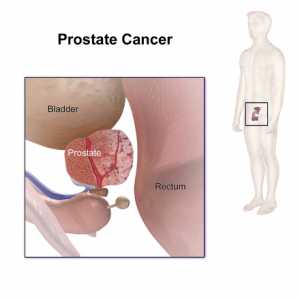
03 Jan Prostate Cancer: Comparison of Outcomes for Black and White Men Treated with Radiation Therapy
MedicalResearch.com Interview with:
Ting Martin Ma, MD, PhD
Resident Physician
Amar U. Kishan, MD
Assistant Professor, Department of Radiation Oncology
Vice-Chair of Clinical and Translational Research
Department of Radiation Oncology at UCLA
MedicalResearch.com: What is the background for this study?
Response: We know from epidemiologic studies that Black men are more likely to be diagnosed with and die of prostate cancer than White men. Recent studies hinted that Black men had better oncological outcome (such as prostate cancer specific mortality and overall survival) responding to systemic therapy for advanced prostate cancer (e.g. cancer that has spread or metastasized to other parts of the body).
The question we were trying to answer in this study is: is there a difference in outcomes between Black and White men with localized prostate cancer (cancer that has not spread) receiving definitive radiotherapy enrolled in clinical trials?
MedicalResearch.com: What are the main findings?
Response: We found robust improvement in cancer outcomes across the board for Black men: they are less likely to develop metastasis from prostate cancer or die of prostate cancer; they also did favorably even for early disease endpoints such as biochemical recurrence (PSA rise after treatment suggesting cancer recurrence).
MedicalResearch.com: What should readers take away from your report?
Response: Taken together, there are no data to suggest that prostate cancer is inherently more aggressive in Black men who are presenting for treatment. The discrepancy between the outcome of Black men enrolled in clinical trials and on a population level suggests that other determinants of outcome, such as access to care, are important factors of achieving racial equity. Standard of cares should be abided by, and we should always be cognizant of any barriers to healthcare access that might hamper outcomes.
MedicalResearch.com: What recommendations do you have for future research as a result of this work?
Response: One avenue for future research is to elucidate the mechanism of improved outcome in Black men (e.g. these in clinical trials) such as differences on a genetic, epigenetic, and immunological level. Another avenue is to investigate the causes for the gap in outcomes on a population level and potential solutions. Engaging Black men and increasing the representation of the Black population in cancer prevention and treatment studies should be a priority. Research in this area suggests that community outreach and connecting with community stakeholders are effective. More importantly, only a minority of overall prostate cancer patients are enrolled in clinical trials and it should not take enrollment on a clinical trial to receive a timely diagnosis or standard of care treatment. Facilitating early diagnosis through guideline-concordant PSA screening is critical.
Moreover, most death events in patients with prostate cancer, regardless of race, are due to diseases other than prostate cancer, underscoring the importance of overall health in men with prostate cancer.
Therefore removing the impediments to health care in general will likely improve the survival of Black men with prostate cancer at large.
Please refer to the journal article for full disclosures.
Citation:
Ma TM, Romero T, Nickols NG, et al. Comparison of Response to Definitive Radiotherapy for Localized Prostate Cancer in Black and White Men: A Meta-analysis. JAMA Netw Open. 2021;4(12):e2139769. doi:10.1001/jamanetworkopen.2021.39769
[wysija_form id=”3″]
[last-modified]
The information on MedicalResearch.com is provided for educational purposes only, and is in no way intended to diagnose, cure, or treat any medical or other condition. Always seek the advice of your physician or other qualified health and ask your doctor any questions you may have regarding a medical condition. In addition to all other limitations and disclaimers in this agreement, service provider and its third party providers disclaim any liability or loss in connection with the content provided on this website.
Last Updated on January 3, 2022 by Marie Benz MD FAAD
